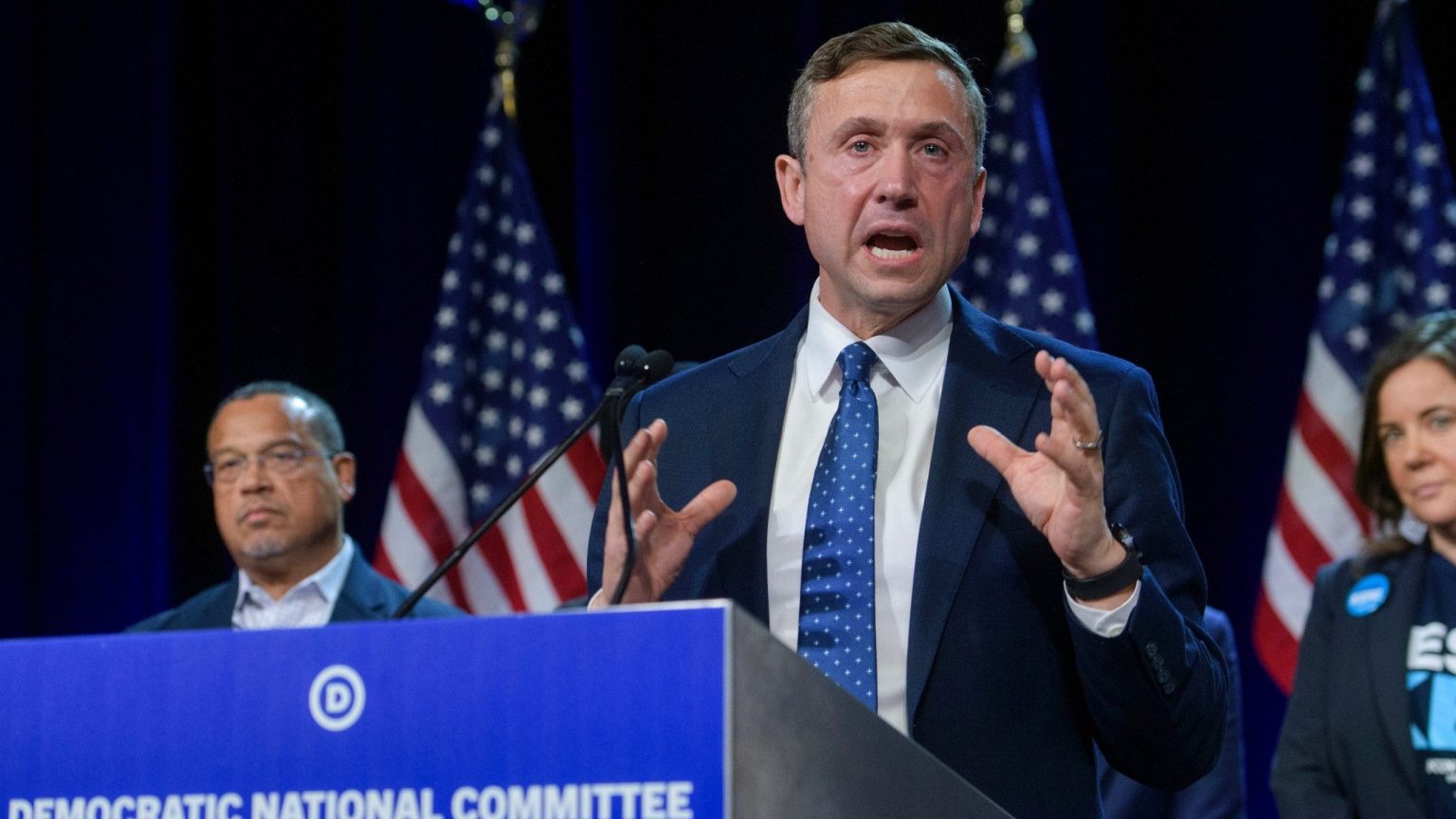In a recent appearance on MSNBC’s “Morning Joe,” Ken Martin, the newly elected chairman of the Democratic National Committee (DNC), made headlines when he referred to President Donald Trump’s ambitious $3.3 trillion government spending package as “bulls—.” Martin’s comments come amidst intense scrutiny of the bill, which he claims will be detrimental to the American populace. His remarks and the surrounding political climate highlight the ongoing tensions as Congress prepares for the final vote on this contentious legislative proposal.
| Article Subheadings |
|---|
| 1) Martin’s On-Air Expletive and Its Impact |
| 2) Context: The Legislative Landscape |
| 3) The Democratic Strategy Moving Forward |
| 4) Republican Response to DNC Critique |
| 5) Implications for the Midterm Elections |
Martin’s On-Air Expletive and Its Impact
While engaging in a discussion on MSNBC, Ken Martin did not hold back in expressing his opposition to President Donald Trump’s spending package, making a slip that caught viewers off guard. The Democratic leader said, “this bulls— bill” when referring to Trump’s legislative proposal, which was perceived as a direct attack on both the bill and its supporters. This moment has gone viral on social media, amplifying the stresses within and between political parties. The unfiltered remark illustrated Martin’s frustration and added a layer of theatricality to an already heated debate. It has also raised questions about decorum in political discourse, particularly when politicians are under scrutiny for their public statements.
Context: The Legislative Landscape
The incident occurred just before Congress was poised for a crucial vote on the president’s spending plan. Spanning $3.3 trillion, the bill not only focuses on infrastructure but also extends into various sectors, making it one of the most comprehensive legislative proposals in recent history. The debate surrounding this bill is intense, as it’s emblematic of the broader ideological battle between Democrat and Republican lawmakers. House Minority Leader Hakeem Jeffries, who is also from New York, engaged in an extensive speech on the House floor aimed at delaying the vote. His speech served as a platform for critical remarks against the proposed spending, suggesting it would fundamentally fail to serve the American people.
The Democratic Strategy Moving Forward
In his commentary, Ken Martin suggested that the Democratic Party is not simply standing in opposition but is actively strategizing for future electoral victories. He articulated that the Democratic response is fueled by a collective anger against the missteps of the GOP and President Trump. Martin’s rhetoric implies that the Democratic Party sees the bill as a “gift” from their opponents—a chance to rally voters by leveraging perceived failures and “betrayals” of the Republican agenda. This narrative is particularly significant as it aligns with their efforts to unify the party and consolidate support among voters disillusioned by ongoing political challenges.
Republican Response to DNC Critique
In response to Martin’s biting comments, Republican lawmakers have stood firm, suggesting that the DNC’s criticisms are politically motivated and lacking credibility. They argue that the bill reflects necessary investments in the nation’s future and is not the disaster that Democrats claim. The GOP’s counter-narrative is that the Democratic Party is simply engaging in fear-mongering to distract voters from their own policy shortcomings. They stress the importance of moving forward with the legislation to secure economic growth and infrastructure improvements, characterizing the DNC’s response as a desperate attempt to regain electoral ground in a changing political landscape.
Implications for the Midterm Elections
The Democratic strategy, as noted by Martin, is aimed at positioning the party favorably for the upcoming midterm elections. However, skepticism exists among commentators about the effectiveness of this approach, given past experiences when Democrats miscalculated their electoral advantages. NBC’s correspondent, Ali Vitali, highlighted that many Democratic leaders previously regarded Trump as a “gift” for rallying the party, only to face unforeseen electoral consequences in the 2016 presidential campaign. The lessons of 2016 loom large as Martin and his colleagues push a narrative of voter betrayal which they hope will resonate in the hearts and minds of the electorate.
| No. | Key Points |
|---|---|
| 1 | Ken Martin’s on-air expletive drew widespread attention and reflected deep frustration within the DNC. |
| 2 | The context of the final congressional vote on a major spending package intensifies political stakes. |
| 3 | Democrats aim to capitalize on perceived Republican betrayals, framing their opposition strategy for future elections. |
| 4 | Republican lawmakers argue that the spending bill is essential for economic growth and reject the DNC’s alarmist rhetoric. |
| 5 | Past electoral miscalculations loom over Democratic strategies, emphasizing the need for caution and astute voter engagement. |
Summary
The recent remarks by Ken Martin on MSNBC have brought forth significant attention to the intricacies of the political landscape surrounding Donald Trump’s spending bill. With the implications spanning beyond mere disagreement, they reflect broader strategic considerations as both parties brace for the forthcoming midterm elections. As tensions rise in Congress, the stakes are higher than ever, marking another chapter in the tumultuous relationship between the Democratic and Republican parties.
Frequently Asked Questions
Question: What did Ken Martin call Trump’s spending bill?
Ken Martin referred to Trump’s spending package as “bulls—” during a live broadcast on MSNBC.
Question: Why is the spending bill significant?
The $3.3 trillion spending bill encompasses a wide range of infrastructure investments and is viewed as a turning point in the legislative agenda for Trump and congressional Republicans.
Question: How are Democrats preparing for the midterm elections?
Democrats, led by figures like Ken Martin, are strategizing to highlight Republican actions they view as betrayals, aiming to galvanize voter support in the upcoming elections.


